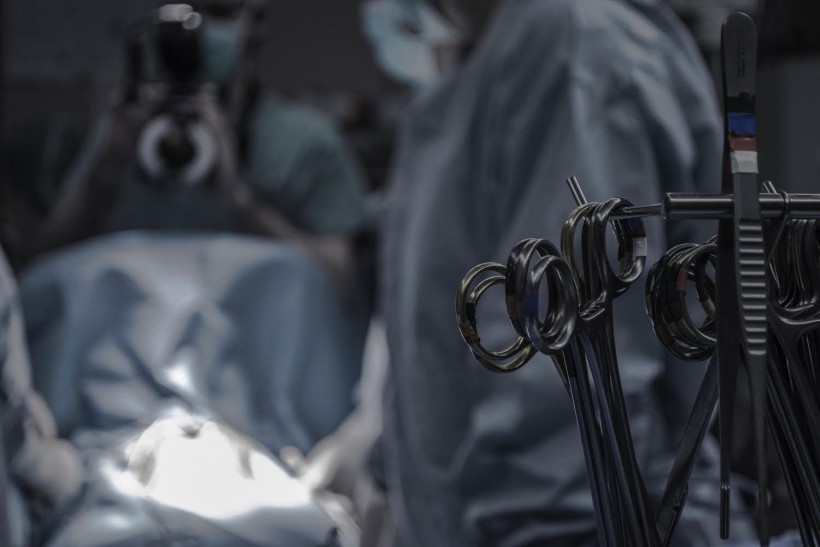On August 5, 2020 a major breakthrough was made in the treatment of atrial fibrillation (AFib) that could change the future of how practitioners reduce one of the most prevalent causes of strokes. Nearly simultaneously, a new device called the WATCHMAN FLXTM Left Atrial Appendage Closure was implanted into patients in Austin, Texas, and Thousand Oaks, California. The surgeries were led by Dr. Andrea Natale and Dr. Saibal Kar in California and Dr. Rodney Horton in Texas. This was the first FDA-approved implantation device for reducing strokes in patients with non-ventricular atrial fibrillation.
What Is Atrial Fibrillation?
Atrial fibrillation is an irregular heartbeat that occurs in a specific manner. The heart is a muscle containing four vessels. The top two are called atria, while the bottom two are called ventricles. A heartbeat occurs when an electrical signal is generated from the top of the right atrium, from which it travels through an electrical route called the AV node to act as a natural pacemaker for the heart. This causes the atria to contract, filling the ventricles with blood, which is then followed by the ventricles contracting a fraction of a second later to pump blood throughout the body.
A healthy heart generally beats from 40 to around 100 beats per minute. However, with AFib, electrical signals generated in the heart cause the atria to beat so fast that they quiver. This can be as much as 300 to 600 beats per minute. Thankfully, the AV node filters out most of these from reaching the ventricle, but some do make it through.
When a doctor takes your pulse, they are measuring the rate that your ventricles are beating. In cases of AFib, this will register as one steady thump, followed by an irregular response, known as fibrillation.
There are numerous serious problems and health hazards caused by AFib. Untreated, the condition can impede blood flow, cause damage to organs, and even cause brain damage. But one of the greatest threats caused by AFib is the risk of stroke. Untreated, those with AFib are five to six times more likely to fall victim to a stroke, often caused by a blood clot formed in the atria that then travels up to the brain. An estimated six million Americans are affected by the condition.
How Does This New Treatment Work?
The implanted device works by reducing the possibility of stroke by completely cutting off the flow of blood to an area of the heart called the left atrial appendage (LAA). This stops blood clots from forming in the LAA and can go a long way toward preventing strokes in patients with AFib. By permanently cutting off this part of the heart, a patient may even be able to reduce or eliminate their need to take blood thinners as a preventative measure against strokes.
Dr. Andrea Natale explains that the rounded design of the device makes it much easier to enter and maneuver safely, and because it is available in a variety of sizes, it can treat more people than previous generations of the device.
The procedure is carried out with general anesthesia and takes about an hour, usually requiring only a single night's stay in the hospital.
About Dr. Andrea Natale
Andrea Natale, M.D., F.H.R.S., F.A.C.C., F.E.S.C., was born and raised in Italy. He began his journey toward becoming both a healer and one of the world's preeminent cardiologists in 1979 when he enrolled in the School of Medicine and Surgery at Universita Degli Studi di Firenze in Florence, graduating with honors in 1985. From there, he continued his studies at Rome's Catholic University School of Cardiology, also earning honors in pursuit of his specialization.
Upon completing that program, Dr. Andrea Natale headed up the physiopathology section of the Italian Air Force's Department of Medicine before relocating to the United States to continue his first-class training. In Houston, he worked on a research fellowship at Baylor College's Methodist Hospital prior to completing residencies at the University of Wisconsin and Western Ontario University in Canada.
A Storied Career
Dr. Andrea Natale's career in the United States began with a faculty position at Duke University, followed by him becoming the director of electrophysiology and section head of the Department of Cardiac Pacing and Electrophysiology.
He continued to specialize in AFib and became the medical director at Cleveland Clinic's Center for Atrial Fibrillation. Recognized for his expertise in the area, he was also named to the FDA's Taskforce for Atrial Fibrillation.
Since 2008, Dr. Andrea Natale has been based in Austin, Texas, at the Texas Cardiac Arrhythmia Institute (TCAI), while simultaneously assuming numerous leadership roles at institutions and universities around the country, including at Los Robles Regional Medical Center in Thousand Oaks, where he performed the game-changing surgery.
Additionally, Dr. Andrea Natale contributes to the academic community, having held positions at academic institutions such as Stanford University and Western Reserve University. Additionally, he's been named a fellow of the European Society of Cardiology, the American College of Cardiology, and the Heart Rhythm Society.
Pioneering the Treatment of AFib
Throughout his career, Dr. Andrea Natale has made tremendous contributions to the treatment of AFib. This has included the creation of multiple methods of vein ablation. One uses circumferential ultrasounds to treat AFib, and Natale personally performed the first five procedures of this innovative technique in the world. He also created a method of ablation using radio frequencies for patients who did not benefit from more traditional forms of ablation. Andrea Natale also holds a patent for his invention of an atrial fibrillation device.
Many Honors
As one of the foremost experts on AFib and a renowned cardiologist and specialist of internal medicine, Dr. Andrea Natale is regularly invited to speak at symposia around the world. He has published hundreds of papers on the topic of AFib. He has also received numerous honors, including being named "top doc" in Cleveland and Austin and "best doc" in both Northern Ohio and the overall United States.
He is highly sought after for his ability to treat even the most complex cases of AFib. For Dr. Andrea Natale, perhaps his greatest honor is being able to offer healing to so many.
© 2024 NatureWorldNews.com All rights reserved. Do not reproduce without permission.
* This is a contributed article and this content does not necessarily represent the views of natureworldnews.com






